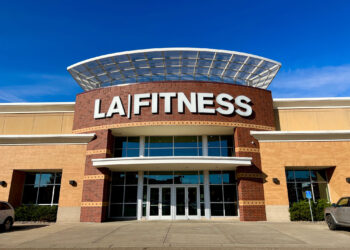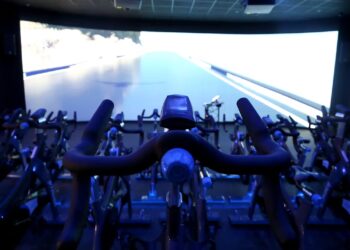
NFL quarterback David Garrard has a new playbook to learn, and it has nothing to do with his new team, the New York Jets.
Instead, Garrard plans on opening three Retro Fitness locations in Jacksonville, Fla., which he considers his hometown after playing for the Jaguars from 2002 to 2010. Those accomplishments, plus the people involved at the top of the company, are what made Garrard decide to add fitness franchising to his repertoire.
“I just thought it was a great model that fit me,” said Garrard. “I’ve been in the fitness world pretty much my whole life. I just understand it. After meeting with those guys and learning about the franchise world, this is a great fit for me. They’re a franchise that really has your back. They definitely don’t want you to fail.”
He is not the first professional athlete to become involved with the Retro Fitness franchise. Leigh Bodden, who has played for the Browns, Patriots and Lions as a cornerback, has also signed on to bring Retro Fitness to the Washington, D.C. area.
Eric Casaburi, the founder and owner of Retro Fitness, said he thinks many athletes can easily make the transition from professional sports to franchise owners. “I do think there’s a great amount of synergy,” he said. However, Casaburi said that aside from being passionate about fitness, they must be business-minded. “And a lot of athletes do have that — their livelihood is a business.”
Garrard was first inspired to look into fitness franchises after he attended a conference hosted by the Professional Athletes in Franchising Initiative. At the conference, speakers went over franchising opportunities, especially within the restaurant business. But Garrard was particularly drawn to the fitness franchise models, such as Retro.
“In the fitness world, people actually pay you to sweat and to work hard,” he said. “The time and effort involved is not the same as maybe in the restaurant business. At a restaurant, you have to be there constantly and make sure all the food is made right and everything is running smoothly. With a fitness franchise, it’s something I can go to as often as I want to, and still have time with my family and my kids.”
Garrard plans on being involved as much as possible with his Retro Fitness locations, especially during the NFL offseason, when he doesn’t have to practice. He’s passionate about the Retro Fitness model, which he believes will set him up for success.
“I’ve been a football player my whole life,” said Garrard. “When the coach gives me a playbook, I study it and follow it and execute it. That’s how I’m taking the franchise world. Retro Fitness has already put together the playbook, and I’m going to make sure I stick to the model and really just execute. I’m not trying to re-invent the wheel.”
Community involvement will be a priority for Garrard’s Jacksonville locations. Jacksonville is still “home” for Garrard and his wife, Mary. He was drafted by the Jaguars directly after his graduation from East Carolina University, and played there for most of his NFL career. His time there is still at the forefront of his mind, and a reason why he chose that area of the country for his Retro Fitness locations.
In a way, Garrard also wants to re-pay the Jacksonville community for the support he received there when he was still in a Jaguars uniform.
“I want to show that I’m not just in this for the money,” he said. “I want to be able to somehow tie my clubs into some of the hospitals around town so that people are released from rehab and treatment and they can have somewhere to go to continue their treatment.”
According to Garrard, his first Jacksonville location will most likely be open by summer of 2014.
Garrard believes his business ventures will not only benefit him and his family in the long run, but also the entire city of Jacksonville.
“This business is my little baby,” he said. “With my opening up these clubs, I think I’m doing something for the community. I’m not just opening up your fast food restaurants. Not that those are bad businesses to open, but I really feel that I can help the Jacksonville community through fitness.”
By Ashley Scoby
Stay ahead in the fitness industry with exclusive updates!
Rachel Zabonick-Chonko is the editor-in-chief of Club Solutions Magazine. She can be reached at rachel@peakemedia.com.











